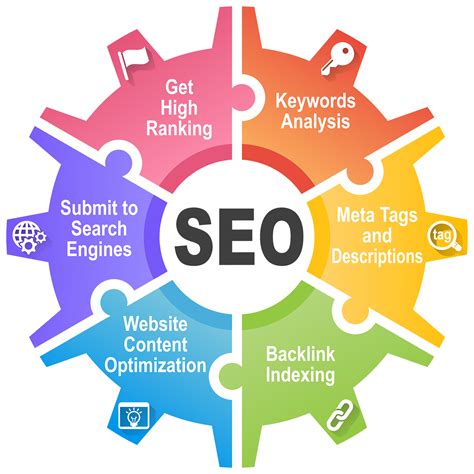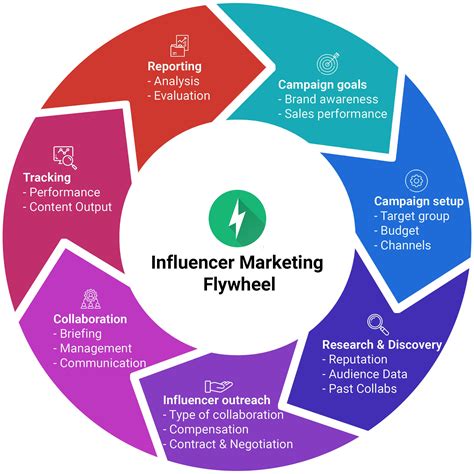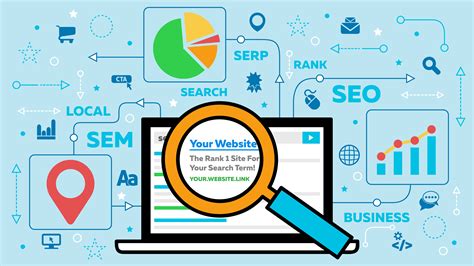Discovering effective methods to enhance the visibility and reach of your website without relying on paid advertising is a constant challenge for online businesses. Optimizing your website to attract organic traffic, or visitors who find your site through search engines, is crucial for long-term success. By implementing a variety of strategies, you can improve your website's performance in search engine results pages (SERPs) and increase the quality and quantity of organic traffic that flows to your site.
Maximize your website's search engine visibility by focusing on search engine optimization (SEO). This involves making strategic changes to your website's design, content, and structure to ensure it ranks higher in search results for relevant keywords. By using targeted keywords naturally throughout your website's content and including them in your meta tags and headings, search engines will have a clearer understanding of what your site is about, making it more likely to show up in relevant search queries.
Creating high-quality, informative content is another powerful way to attract organic traffic. By publishing regularly updated blog posts, articles, and other valuable resources related to your target audience's interests, you can establish your website as a trusted source of information. This not only helps to build your brand reputation but also encourages other websites to link to your content, improving your site's authority and visibility in search engines.
Expanding your online presence through guest blogging is a smart strategy to reach a wider audience and attract more organic traffic. By writing guest posts for reputable websites within your industry, you can tap into their existing readership and drive traffic back to your own site. Additionally, these guest posts often include a bio or author profile that allows you to include a link to your website, further boosting your online visibility and credibility.
Optimize your website for search engines
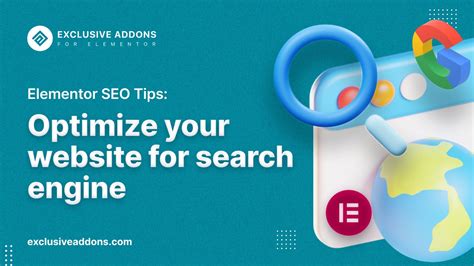
In today's digital landscape, it is crucial for businesses and website owners to ensure that their online presence is easily discoverable by search engines. By optimizing your website for search engines, you can improve its visibility, attract more organic traffic, and ultimately increase your online reach.
One of the key elements of optimizing your website for search engines is to conduct thorough keyword research. Keyword research involves identifying the terms and phrases that your target audience is likely to use when searching for products or services related to your website. By incorporating these keywords strategically into your website's content and metadata, you can increase its relevance and improve its chances of ranking higher in search engine results.
Another important aspect of optimizing your website is ensuring that it has a user-friendly structure. This means organizing your content in a logical and intuitive manner, making it easy for both search engine bots and human visitors to navigate. Creating a clear hierarchy, using descriptive headings, and incorporating internal linking can all contribute to a better user experience and improved search engine rankings.
Additionally, optimizing your website's load speed is essential in today's fast-paced online environment. Slow-loading websites not only frustrate users but also receive lower rankings from search engines. By optimizing your website's code, minimizing file sizes, and utilizing caching techniques, you can significantly improve its load speed and enhance the overall user experience.
Lastly, gaining quality backlinks from reputable websites is a powerful way to optimize your website for search engines. Backlinks act as "votes of confidence" from other websites, indicating to search engines that your website is trustworthy and valuable. Engaging in link building activities such as guest blogging, creating valuable content, and reaching out to influencers in your industry can help you attract high-quality backlinks and improve your website's search engine rankings.
| Key Points |
|---|
| Conduct thorough keyword research |
| Create a user-friendly website structure |
| Optimize website load speed |
| Gain quality backlinks |
Create Compelling and Engaging Content to Drive More Organic Website Traffic
One of the most crucial factors in attracting and retaining organic traffic to your website is by creating high-quality and engaging content. In this section, we will explore the importance of crafting compelling content and provide actionable tips to ensure that your website stands out from the competition.
1. Develop a Content Strategy
- Identify your target audience and their needs
- Conduct keyword research to understand popular topics
- Create an editorial calendar to plan content creation
2. Write Relevant and Valuable Content
- Focus on solving problems or providing information
- Use a conversational tone to connect with your audience
- Incorporate data, statistics, and expert opinions
3. Optimize Content for Search Engines
- Include relevant keywords in your headlines, subheadings, and body
- Write descriptive meta tags and meta descriptions
- Use internal and external links to enhance credibility
4. Make Content Easily Shareable
- Add social media sharing buttons to your articles
- Encourage readers to share by providing valuable content
- Use visually appealing images and infographics
5. Engage with Your Audience
- Respond to comments and questions promptly
- Encourage discussion and interaction through comments
- Consider hosting live Q&A sessions or webinars
By implementing these strategies and consistently creating high-quality content, you can effectively engage your target audience, increase website traffic, and improve your organic search rankings. Remember, the key is to provide value and establish yourself as an authoritative source in your industry.
Enhance your online visibility with relevant keywords

In order to improve the visibility of your website on search engines, utilizing relevant keywords in your content and meta tags is essential. By incorporating keywords that are closely related to your niche or industry, you can increase the chances of your website appearing in organic search results.
When creating content for your website, make sure to include keywords strategically throughout your text. This will help search engines understand the relevance of your content to users' search queries. However, it's important to use keywords naturally and avoid stuffing them unnaturally into your content. By creating valuable and informative content that incorporates relevant keywords, you can attract organic traffic and establish a trustworthy online presence.
In addition to incorporating keywords in your content, optimizing your meta tags is another effective way to improve your website's organic traffic. Meta tags provide information about your web page to search engines and play a crucial role in determining your website's ranking in search results.
Start by optimizing your meta title, which is the title that appears on search engine results pages. Make sure it accurately represents the content of your webpage and includes relevant keywords. Additionally, optimize your meta description, which is a concise summary of your webpage. Craft a compelling and keyword-rich description that entices users to click on your website when it appears in search results.
| Benefits of using relevant keywords in your content and meta tags: |
|---|
| 1. Improved visibility on search engines |
| 2. Increased organic traffic |
| 3. Enhanced online presence and credibility |
| 4. Higher chances of appearing in relevant search results |
Overall, incorporating relevant keywords in your content and meta tags is crucial for boosting your website's organic traffic. By doing so, you can improve your online visibility, attract targeted visitors, and ultimately achieve your website's goals.
Increasing Website Visibility through the Creation of High-Quality Backlinks
In order to enhance the online visibility of your website, it is crucial to establish a network of authoritative and reputable websites that link back to your own site. These connections, known as backlinks, play a significant role in driving targeted traffic and improving your search engine rankings. This section will delve into various strategies and techniques to build high-quality backlinks that will ultimately contribute to the overall success of your website.
1. Leveraging Guest Blogging:
One effective way to obtain quality backlinks is through guest blogging. By crafting well-written and informative articles for other websites within your niche, you not only establish yourself as an industry expert but also gain valuable exposure to a broader audience. Within these blogs, it is important to incorporate link placements back to your own website, further strengthening your backlink profile.
2. Engaging in Influencer Partnerships:
Collaborating with influential individuals or brands within your industry can be an excellent strategy for building backlinks. By forming partnerships and co-creating content together, you can tap into their existing audience, expand your reach, and acquire valuable backlinks from their websites or social media platforms.
3. Creating Compelling Infographics:
Infographics have become increasingly popular due to their visually appealing nature and ability to convey complex information in a simplified manner. By creating high-quality and visually captivating infographics related to your niche, you increase the likelihood of other websites sharing and linking back to your content, resulting in valuable backlinks and increased website visibility.
4. Utilizing Social Media Platforms:
Social media platforms provide an excellent opportunity to generate backlinks and increase website visibility. By regularly sharing engaging content and encouraging others to share it as well, you improve the chances of acquiring backlinks from social media profiles and relevant websites, ultimately driving more organic traffic to your website.
5. Building Relationships with Industry Experts:
Networking and forming relationships with influential individuals within your industry not only provides numerous learning opportunities but also opens the door for potential backlink collaborations. By engaging in meaningful conversations, attending industry events, and participating in online forums or communities, you can establish yourself as a respected figure and gain valuable backlinks from other reputable websites within your field.
By implementing these strategies and actively working towards building quality backlinks, you can significantly enhance your website's visibility, attract targeted organic traffic, and establish a solid foundation for long-term success.
Utilizing Social Media for Promoting Your Website

Within the realm of enhancing your online presence, social media can play a vital role in driving traffic to your website and increasing its visibility. By effectively utilizing various platforms, you can engage with your target audience, build brand awareness, and ultimately, attract more visitors to your site.
One of the primary advantages of leveraging social media is its ability to connect you directly with your audience. With millions of active users on platforms such as Facebook, Twitter, Instagram, and LinkedIn, you have the opportunity to reach a vast and diverse audience. By effectively engaging with your followers through posts, comments, and shares, you can cultivate a loyal community that is more likely to visit and share your website.
| Platform | Benefits |
|---|---|
| With its extensive user base, Facebook offers a wide reach for promoting your website. Utilize business pages, groups, and targeted ads to increase your visibility. | |
| Utilize hashtags and engaging content to attract followers and drive traffic to your website. Regularly interact with your audience to maintain their interest. | |
| Showcase visually appealing content related to your website or products. Utilize hashtags and thorough captions to increase engagement and redirect users to your site. | |
| Tap into the professional network and share informative and industry-specific content. Engage with relevant groups and connect with potential website visitors. |
Another advantage of social media promotion is the potential for content virality. By creating high-quality and shareable content, you can encourage your followers to share it with their networks, thereby increasing the reach and visibility of your website. Infographics, videos, insightful articles, and visually appealing images are all effective in driving traffic through social media shares.
Finally, social media provides a valuable platform for showcasing your website's unique offerings and connecting with industry influencers. By collaborating with influencers or participating in relevant industry conversations, you can establish your website as a trustworthy and authoritative source, attracting more organic traffic.
When utilizing social media to promote your website, it is essential to have a well-defined strategy, consistent branding, and a regular posting schedule. Engage with your audience, analyze your social media metrics, and adapt your approach based on your findings. With an effective social media strategy, you can significantly boost your website's visibility and drive organic traffic.
Enhance your website's loading speed
One of the key factors in optimizing your website's performance is to improve its loading speed. Faster loading times can lead to a better user experience, higher rankings in search engine results, and increased organic traffic. Below are some strategies to enhance your website's loading speed:
- Optimize image sizes: Use compressed and properly formatted images to reduce their file sizes without compromising on quality.
- Minify CSS and JavaScript: Remove unnecessary spaces, comments, and code from CSS and JavaScript files to make them smaller and load faster.
- Enable browser caching: Utilize browser caching to store certain elements of your website on a visitor's device, reducing the need to download them each time they visit.
- Utilize a CDN: Implement a Content Delivery Network (CDN) to distribute your website's content across multiple servers worldwide and deliver it to users from the closest server, minimizing latency.
- Reduce server response time: Optimize your server settings and configuration to ensure quick response times and efficient handling of requests.
- Eliminate unnecessary plugins: Remove unnecessary plugins and scripts that may slow down your website's loading speed.
- Utilize lazy loading: Implement lazy loading techniques to delay the loading of images and videos until they are needed, improving initial page load times.
- Optimize code and database: Clean up your website's code and database by removing unused or redundant elements, optimizing queries, and reducing the overall size.
- Choose a reliable hosting provider: Select a hosting provider with fast servers, reliable uptime, and adequate resources to ensure optimal loading speed for your website.
- Regularly monitor and optimize: Continuously monitor your website's loading speed using various tools and make necessary optimizations to improve performance over time.
By implementing these strategies and continually optimizing your website's loading speed, you can enhance the user experience, attract more organic traffic, and ultimately achieve better online visibility and business growth.
Consistently updating and maintaining your website
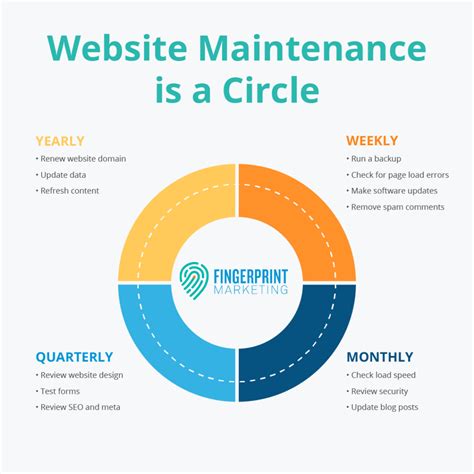
Keeping your website current and well-maintained plays a crucial role in ensuring its success. In today's fast-paced digital landscape, regularly updating your website with fresh content and performing routine maintenance tasks are key to attracting and retaining organic traffic.
The online world is constantly evolving, and by keeping your website up to date, you demonstrate to both users and search engines that your online presence is active and relevant. Regular updates can include publishing new blog posts, refreshing existing content, adding multimedia elements, or implementing new features or functionalities.
By adding fresh content, you provide visitors with a reason to return to your website and engage with your brand. Additionally, search engines prioritize websites that frequently update their content and are more likely to crawl and index your pages regularly.
Maintaining your website involves more than just updating content. It also includes tasks such as checking for broken links, optimizing page loading speed, ensuring mobile responsiveness, and optimizing for search engine visibility. These tasks contribute to providing a seamless user experience, increasing the chances of visitors staying on your website longer and exploring more of your content.
Regularly reviewing and analyzing website analytics can help you identify areas for improvement and guide your efforts in updating and maintaining your website effectively. By understanding user behavior, popular search terms, and conversion metrics, you can tailor your content and optimize your website for better organic traffic results.
In conclusion, regularly updating and maintaining your website is crucial for attracting and retaining organic traffic. By consistently providing fresh, relevant content and ensuring a smooth user experience, you can improve your website's visibility, engagement, and overall success in the online world.
Harness the Power of Email Marketing to Drive Visitors to Your Online Platform
Email marketing is an invaluable tool that can significantly enhance your website's visibility and attract an increased number of visitors. By leveraging the potential of targeted email campaigns, you can connect with your target market in a more personal and direct manner, ultimately encouraging them to engage with your website. In this section, we will explore the various strategies and tactics you can employ to effectively utilize email marketing and drive traffic to your online platform.
Collaborate with influencers and industry experts to enhance visibility

In today's competitive online landscape, it is essential to seek collaborations with influential individuals and industry experts to increase your website's visibility. By leveraging the reach and influence of these professionals, you can effectively expand your online presence and attract a wider audience.
Why collaborate with influencers and industry experts?
Collaborating with influencers and industry experts allows you to tap into their established networks and credibility. These individuals have built a loyal following and, as a result, have gained authority and trust within their respective domains. By associating your website or brand with them, you can benefit from their endorsement and reach.
How to find the right influencers and industry experts?
Start by identifying influencers and experts who align with your brand values and target audience. Look for individuals who have a significant following in your industry and are actively engaged with their audience. This can be done through thorough research on social media platforms, industry-specific websites, and forums.
Reaching out to influencers and industry experts
Once you have identified potential collaborators, it is important to reach out to them in a professional and personalized manner. Craft a compelling message explaining why you believe a collaboration would be beneficial for both parties. Highlight how their expertise or influence can add value to your website and audience.
Types of collaborations to consider
There are various ways to collaborate with influencers and industry experts. Some options include guest blogging, social media partnerships, product/service endorsements, and co-creating content such as interviews or webinars. It is essential to discuss the terms of the collaboration, including deliverables, timelines, and any financial arrangements, to ensure a mutually beneficial partnership.
Measuring the impact of collaborations
To gauge the success of your collaborations, it is important to measure key metrics such as website traffic, engagement levels via comments or shares, and conversions. Tracking these metrics over time will help you evaluate the effectiveness of your partnerships and make any necessary adjustments.
Consistency and long-term relationships
Collaborating with influencers and industry experts should not be a one-time endeavor. Building long-term relationships and consistently engaging with these individuals can lead to ongoing benefits for your website. Keep nurturing these partnerships by providing value, supporting their initiatives, and staying connected through various channels.
In conclusion, collaborating with influencers and industry experts can significantly enhance your website's visibility and drive organic traffic. By leveraging their reach and credibility, you can expand your audience and establish yourself as an authority in your industry.
FAQ
What are some effective ways to boost organic traffic to my website?
There are several effective ways to boost organic traffic to your website. Firstly, you can optimize your website for search engines by using relevant keywords in your content and meta tags. Additionally, creating high-quality and engaging content that attracts backlinks can also increase your organic traffic. You can also improve your website's user experience by optimizing page load speed and ensuring mobile-friendliness. Finally, leveraging social media platforms and promoting your website through email marketing campaigns can also contribute to boosting organic traffic.
How can I optimize my website for search engines?
To optimize your website for search engines, you should conduct keyword research to identify relevant keywords for your niche. Then, incorporate these keywords into your website's meta tags, page titles, headers, and throughout your content. Additionally, creating informative and unique content that focuses on these keywords can help improve your website's visibility in search engine results. It is also crucial to ensure proper website indexing, use descriptive URLs, and optimize your images by adding alt tags.
What role does content play in increasing organic traffic?
Content plays a significant role in increasing organic traffic to your website. By creating high-quality, relevant, and engaging content, you not only attract and retain visitors but also increase the likelihood of other websites linking to your content. Backlinks from reputable websites can significantly improve your website's visibility in search engine rankings, leading to increased organic traffic. Moreover, regularly publishing fresh content also signals search engines that your website is active and relevant, further boosting your organic traffic.
Why is improving the user experience important for organic traffic?
Improving the user experience is essential for organic traffic because search engines prioritize websites that provide a positive user experience. A website that is easy to navigate, loads quickly, and is mobile-friendly tends to rank higher in search engine results. Users are more likely to engage with and share websites that provide a seamless browsing experience. By focusing on improving your website's user experience, you create a positive impression on visitors, which can lead to increased organic traffic over time.
How can social media and email marketing contribute to boosting organic traffic?
Social media and email marketing can contribute to boosting organic traffic by driving visitors to your website through various channels. By promoting your website's content on social media platforms, you can attract users who may not have found your website through search engines. Sharing engaging and shareable content can also increase the likelihood of your content being shared, leading to increased organic traffic. Email marketing campaigns can also help bring visitors back to your website, increasing repeat visits and potentially spreading the word about your content to a wider audience.
What are some effective ways to increase my website's organic traffic?
There are several effective ways to boost your website's organic traffic. One way is to regularly create high-quality and relevant content that is optimized for search engines. This can help improve your website's visibility in search engine results and attract more organic traffic. Another way is to focus on on-page optimization, such as optimizing your website's meta tags, headings, and URLs. Additionally, building backlinks from reputable and relevant websites can also help drive more organic traffic to your site.
